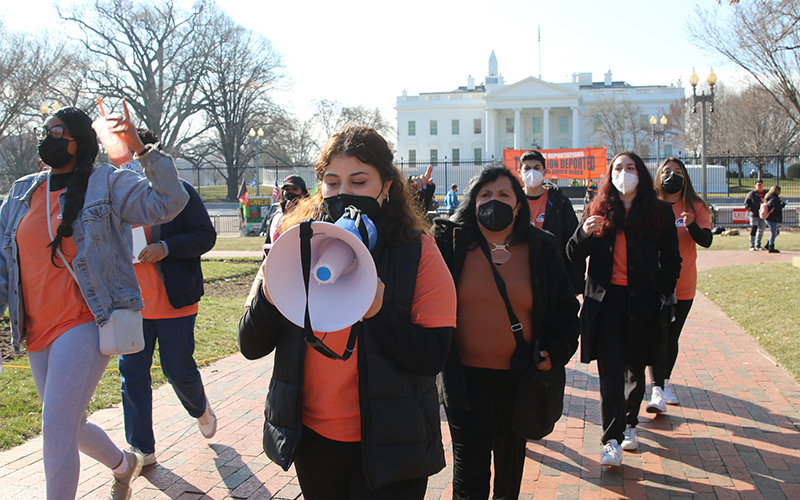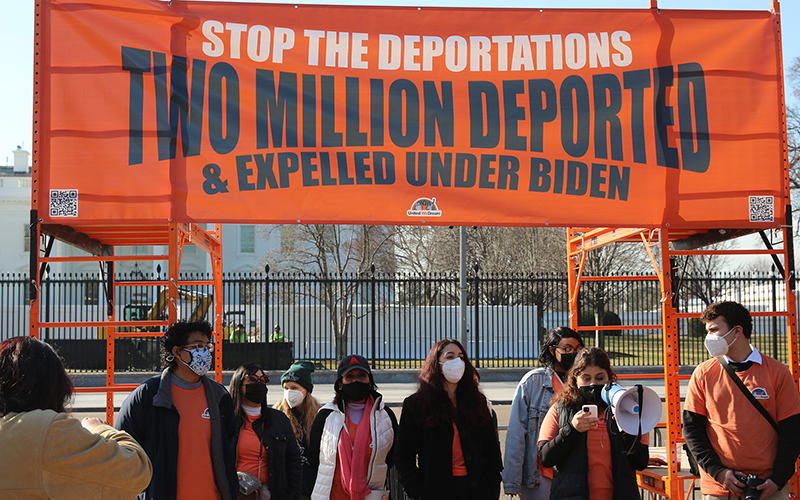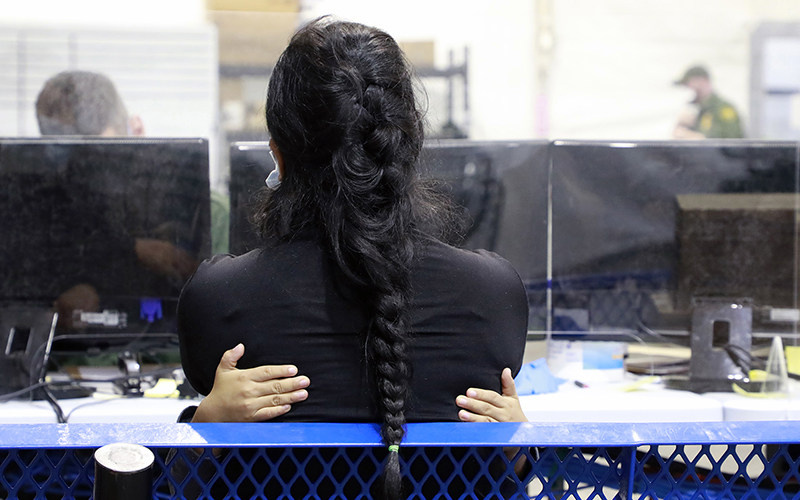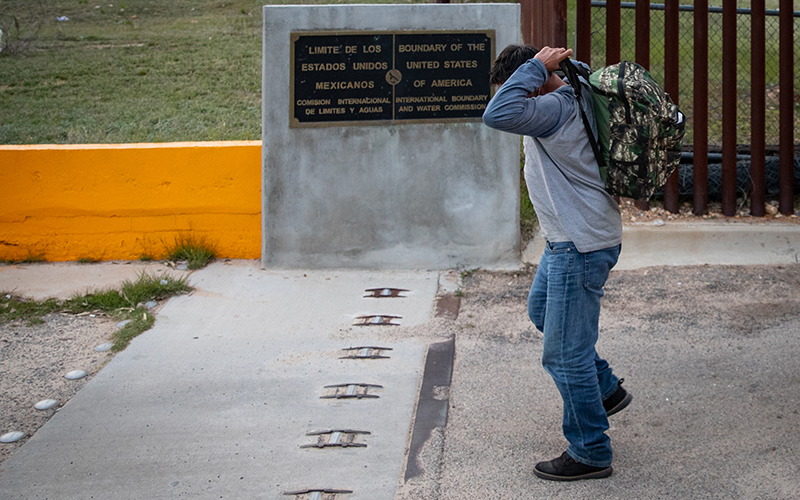WASHINGTON – The director of Arizona’s Department of Homeland Security told a panel of lawmakers Wednesday that the Migrant Protection Protocols, also known as the “remain in Mexico” policy for immigrants, is helping to keep Arizonans safe.
Tim Roemer told a House Homeland Security subcommittee that the policy, which was ordered reinstated by courts after the Biden administration tried to end it, lets border officials spend “less time chasing the same trafficker, smuggler and coyotes.”
“When applied properly MPP helps protect the lives of every Arizona community and those throughout the nation,” Roemer said. “MPP gives federal law enforcement authorities the ability to stop the individuals who are taking advantage of the asylum system and allows the system to work better for those in need.”
But there is no way to apply the law properly, federal officials told the hearing. They repeated administration concerns that the “remain in Mexico” policy is counterproductive and inhumane to migrants, who can fall victim to crime and illness when forced back across the border.
“MPP is not aligned with this administration’s values and imposes an unjustifiable human cost on migrants and pulls resources away from more important efforts that seek to address the root causes of irregular migration,” said Blas Nuñez-Neto, the acting assistant Homeland Security secretary for border and immigration policy.
The hearing came the same day that protesters, including several from Arizona, rallied outside the White House to charge that Biden has not done enough to protect immigrants.
“He was the one that decided to implement that policy with the remain in Mexico,” said Arisaid Gonzalez, an Arizona native who is D.C.-area campaigns manager for United We Dream, which organized Wednesday’s rally. “He had the opportunity to take it away and he hasn’t, so he’s definitely part of the problem.”
MPP was unveiled in January 2019 by the Trump administration. Under the policy, border officials accepted the claim of any migrant who showed up at the border seeking asylum – but then turned that immigrant around to wait in Mexico while their case was considered.
A year later, as the COVID-19 pandemic hit, MPP was combined with Title 42, a law that allows the U.S. to turn back immigrants who pose a potential health risk.
Critics said the two policies posed serious health and safety risks to migrants by forcing them to live in makeshift camps with poor sanitation and little protection from criminals who were free to rob, rape, threaten and, in some cases, kill. Many of the migrants were from countries other than Mexico, leaving them few options when turned back.
“We have very serious concerns about both the remain in Mexico policy and the misuse of Title 42,” said Eleanor Acer, senior director for refugee protection at Human Rights First. “Under both of these policies, which originated under the Trump administration, the United States and now the Biden administration is turning away people seeking asylum to places where their lives and safety are at risk.”
Biden has kept Title 42, to the dismay of immigration advocates. But he tried to do away with MPP shortly after taking office, issuing an executive order on Feb. 2, 2021, to suspend the program, which was followed five months later by a Homeland Security memorandum officially terminating it.
Homeland Security Secretary Alejandro Mayorkas justified termination by saying MPP did not enhance border safety or management, diverted resources from other border missions and exposed migrants to a “lack of stable access to housing, income, and safety.” That could result in some migrants abandoning “potentially meritorious protection claims.”
Texas and Missouri sued, claiming that an end to MPP would mean an influx of immigrants to their states, while overwhelming DHS’s detention capacity, among other concerns. A U.S. district court judge in north Texas agreed and in August ordered DHS to make a “good faith” effort to reinstate the program.

Activists with United We Dream rally outside the White House Wednesday to protest the pace of immigration reform under President Joe Biden. (Photo by Emily Sacia/Cronkite News)
DHS restarted the program, even as it has renewed its efforts to do away with it. The Supreme Court said last month that it will hear the government’s claim that it should be allowed to end the program, fast-tracking arguments for April.
In the meantime, the Biden administration has made two major changes to the program.
Where migrants previously had to tell officers they feared returning to Mexico, officers are now required to ask the question of migrants. And the standard of proof needed to “demonstrate a reasonable possibility of persecution or torture in Mexico,” has been lowered, said Jessica Bolter, associate policy analyst at the Migration Policy Institute.
Roemer acknowledged the humanitarian concerns about MPP. But he said those have to be weighed against the dangers of a wide-open asylum system, to both migrants and Arizona residents.
“MPP allows authorities to take significant action as opposed to the catch-and-release tactics from the past that are sadly becoming all too real again today,” he said. It allows border officials to focus their activities on the worst actors, “effectively protecting Arizona and America from dangerous drugs and transnational criminal organizations who continue to profit off of vulnerable populations.”
But for Ana, an undocumented immigrant from Arizona who was part of the rally outside the White House Wednesday, the only real solution will be comprehensive immigration reform. Despite Biden’s pledge to get reform passed, protesters noted that there have been 2 million deportations under his administration so far.
“I’m here because we just hear the same rhetoric, they always say promises and they never fulfill their promises,” Ana, speaking in Spanish, said through a translator. “So it’s a lot of failure on their end.”



